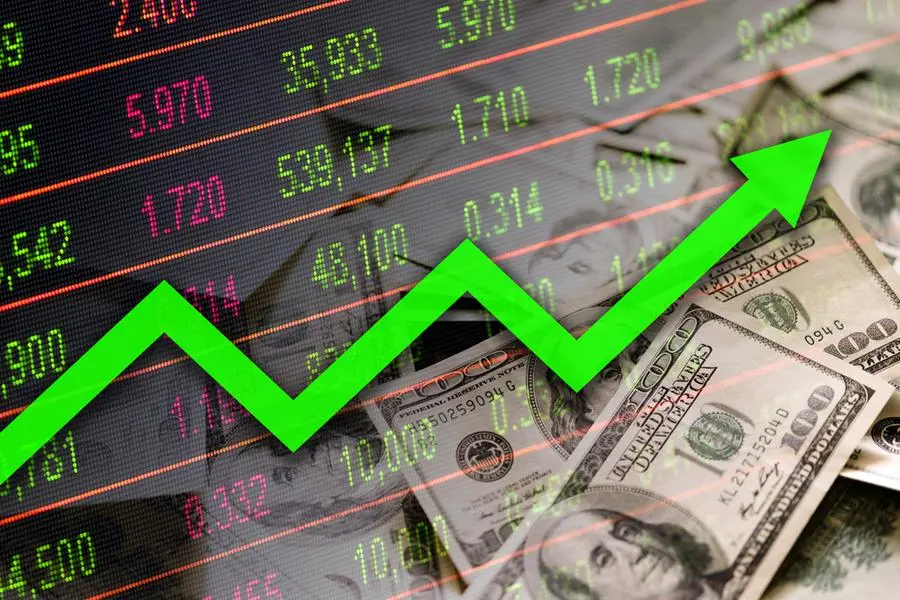PHOTO
The rapid growth of money supply (M3) in April, which rose by 3.98 percent to N96.97 trillion, is likely to drive inflation higher to 35.19 percent, according to research findings by Financial Derivatives Company (FDC) Limited.
This surge in money supply, which followed a 10.26 percent decline in March, poses a significant threat to the inflation outlook.
According to FDC, historical data suggests that every one percent increase in money supply leads to a 0.22 percent increase in headline inflation.
Related PostsNigeria’s inflation hits 34.37% — CAPE Economic Research6 ways to make money in techHomegrown tax approach to inflation targeting
As a result, the Central Bank of Nigeria (CBN) may consider another aggressive interest rate hike at its next Monetary Policy Committee (MPC) meeting on July 22nd and 23rd to combat the potential inflationary pressures.
Nigeria’s annual inflation rate ticked up as expected to 33.95 percent in May.
However, month-on-month headline inflation slowed to 2.14 percent in May 2024 from 2.29 percent in April 2024 which is the second broad-based decline since October 2023.
According to the National Bureau of Statistics Inflation fastened to 33.95 percent May 2024 from 33.69 percent in April 2024, for the seventeenth consecutive month was driven by food and non-alcoholic beverages.
The Financial Derivatives Company, an economic think-tank, had predicted that headline inflation would increase by 0.63 percent to 34.32 percent from 33.69 percent in April.
“Based on our regression model from our Lagos market survey, headline inflation is expected to increase by 0.63percent to 34.32percent from 33.69percent in April.
“ If our forecast is accurate, it will be the fifth consecutive rise in 2024. The rate of increase in price level which was 0.49percent in April is now projected to increase to 0.63percent, which suggests that price will not be moderating anytime soon, “ the firm noted in its note to clients made available to Nigerian Tribune.
This trend combined with other exogenous factors, like the proposed minimum wage review and increase in the rate of money supply, shows that price inflation is still very potent.
Apart from the above, “we are also projecting that food inflation will increase by 0.67percent to 41.20percent from 40.53percent. Core inflation (inflation less seasonalities) will rise marginally by 0.36percent to 27.20ercent from 26.84percent, driven primarily by renewed currency pressures according to FDC.
The NBS noted that the top five contributors of inflation are food & non-alcoholic beverages 17.59 percent, housing, water, electricity, gas & other fuel 5.68 percent, clothing & footwear 2.60 percent, transport 2.21percent and furnishings & household equipment & maintenance 1.71 percent.
Food inflation also rose by 15.84 percent to 40.66 percent, year-on-year. This was a result of an increase in the rate of the average prices of Potatoes, Yam & Other Tubers, Bread and Cereals, Fish, Meat, Fruit, coffee, tea, and Vegetables according to the report.
Nigeria’s money supply (M3) surged to a new peak of N96.97 trillion in April 2024, reflecting a significant recovery from the previous decline recorded in March.
This growth comes in the face of the Monetary Policy Committee’s (MPC) stringent measures aimed at controlling inflation.
The latest money and credit statistics data from the CBN reveals a month-on-month (M-o-M) increase of 5percent from N92.34 trillion the previous month and a year-on-year (Y-o-Y) growth of 73percent from N56.05 trillion in the same month of the previous year.
Aside from March 2024 when there was a marginal M-o-M decline of 3% from a record N93.9 trillion in February, M3 has been on a steady rise, defying CBN’s tightening monetary policy efforts.
Copyright © 2022 Nigerian Tribune Provided by SyndiGate Media Inc. (Syndigate.info).





















